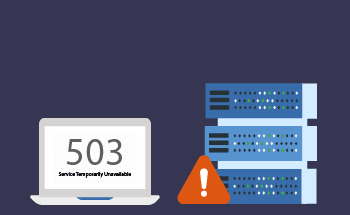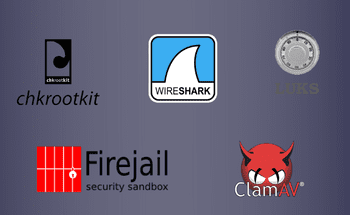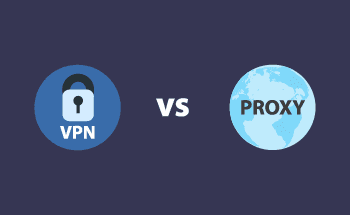What is VPS hosting and how does it work
16:36, 13.05.2020
VPS hosting is one of the hosting solutions that you can use to host your website. It is overall a rather affordable and rather versatile solution, so if you are just going to start your web presence, chances are you’re actually looking for a VPS server, even if you don’t know yet what this is. If you’re interested in VPS hosting and what you need to know about it before purchasing a VPS hosting plan and starting to host your website, then the following reading is what you are actually looking for.
What is VPS Hosting?
VPS is one of the common hosting types, together with dedicated hosting, shared hosting, and cloud hosting. VPS refers to Virtual Private Server.
VPS servers are, one the one hand, created by means of sharing the resources of an entire physical server through virtualization technology. That makes it virtual and private. In shared hosting, in contrast to VPS hosting, there is no special approach involved so the overall quality and functionality of hosting suffer.
The overall experience of using a VPS server is in many ways just the same as one of a dedicated server. You have a machine that has an exact number of dedicated resources. It has its standalone operating system operating, grants you root access and allows you basically to make anything that you can do with a dedicated server, remaining stable, reliable, and secure.
The difference is the cost, as you rent only a part of a server and you pay only for the resources that your use.
Also, over time you can modify the amount of resources available by rescaling your server. You just have to contact your provider, discuss the details and soon you’ll get the refreshed plan with a new price tag. Nothing changes, your data remains intact, but your VPS now has more resources at its disposal which you can use to improve your project, store more data, accommodate more traffic, or launch more resource intensive applications.
All this makes a VPS a solution with a wide range of use cases — whether you want to start a tiny blog on WordPress or a medium-sized niche e-commerce store, chances are a VPS is actually what you are looking for.
The Mechanisms Behind VPS Hosting
The mechanism behind VPS is the virtualization technology. Virtualization is a technology that allows for creating a virtual version of some piece of hardware that then runs on top of the parental machine.
Virtualization is technology, but it is realized in the form of numerous approaches. Generally speaking, virtualized environments are always created using some piece of special software called hypervisor. The way the hypervisor communicates with the underlying hardware and the OS on top of it determines the type of virtualization.
When it comes to hosting, the main types of virtualization you have to know are hardware virtualization, software virtualization, and paravirtualization.
Hardware virtualization suggests that the hypervisor is installed directly onto the hardware and has immediate access to the resources on it.
Software virtualization suggests that the hypervisor is installed onto an already installed operating system so it has a mediated access to the underlying resources.
Paravirtualization is a special type of virtualization where the hypervisor is installed directly on top of hardware while the operating system has to be specially modified to work on the hypervisor.
Hardware virtualization is generally more stable and gives more customizability and better performance than software virtualization. The latter, on the other hand, is easier to configure, launch and maintain from the technical point of view – but this is relevant only as long as you want to take off creating the virtualized environment, not when you rent a VPS.
Paravirtualization allows even for better performance provided by the fine-tuned OS. However, the need for a specially modified OS limits the overall number of systems that can be installed — indeed, in case of hardware virtualization, you can install any operating system.
As you can see, all virtualization types have their specificity, their pros and cons. The virtualization that is used on all VPS by HostZealot is hardware virtualization KVM. We’ve chosen it because it is a hardware level virtualization that allows for maximum stability, reliability, and performance of a VPS, with maximum configurability and customizability for the user as well as the possibility to install any operating system on it.
VPS Hosting Use Cases
VPS hosting is probably the most versatile hosting option among all. VPS servers are highly scalable, so they are ideal for launching small projects like single landing pages, but can be also scaled up to run full-scale projects including extensive blogs or e-commerce web stores.
A VPS is the preferred choice whenever in any case where you are likely to go for shared hosting, since VPS server are better in all terms while entry-level plans are also pretty cheap as well.
As your projects grows, at some level you might require the power of a whole dedicated server, but before that you can just go for a VPS without hesitation.
Different Varieties of VPS Hosting
There is a certain variability when it comes to selecting your VPS hosting plan, so you have to be aware about what you can choose from and what can be the motivation behind choosing this or that hosting option.
Fully Managed VPS Solutions
When rent a VPS, there is a variety of regular maintenance routine operations that are necessary to sustain the operation of your VPS, that include monitoring your VPS performance and security, installing patches and updates, applying advanced security measures like Includes firewalls, intrusion detection systems, and DDoS protection, and many more. These routines are fundamental for stable and proper functioning of your VPS and they would require you or some of your specialists to regularly take care of them. If you see this work as overwhelming considering things that you're already occupied with, you can go for a Fully Managed VPS server. In this case, the specialist of the hosting provider will regularly take care of these task, ensuring the optimal technical maintenance of your VPS.
On HostZealot, we don’t offer classical Managed VPS. Instead, we offer DevOPS services — special server management service with numerous levels of service and 24/7 advanced technical support.
Unmanaged VPS Options
If you’re planning to take care of your hosting management on your own, you can go for a bare unmanaged VPS. This will give you more control of your VPS and a better awareness of what is going on on your server.
Advantages and Disadvantages of VPS Hosting
VPS hosting offers numerous advantages, especially if you compare it with shared hosting.
Pros of VPS hosting:
- Dedicated environment: On a VPS, all resources are dedicated to you. You have a concrete number of RAM, CPU cores, and storage space, and you can do anything for which numbers are sufficient without the fear that something may not work out. You neighbors on the physical server cannot interfere with your own VPS.
- Performance: Due to the above argument, a VPS will provide you with seamless performance as long as you’re maintaining it properly and have a sufficient number of hardware resources. But even if something starts to go wrong, you can feel free to contact the round the clock technical support or rescale your hosting plan if resources aren’t enough.
- Root access: With a good VPS, not only your resources are fully dedicated to you, but also the VPS server itself works as if it were a standalone machine. With this you can apply any configuration and install any solutions without worrying about compatibility.
- Scalability: A VPS is one of the most scalable hosting options. Given that you’re dealing with a virtualized environment which is a part of a big machine, increasing the number of your resources is pretty easily feasible from the technical point of view. So in case you want to scale up your plan, just contact your hosting provider and you’ll be able to easily agree upon the new desired configuration.
- Security: VPS server is also a solution that is capable of offering a brilliant level of security. The way it works allows for the isolation of the virtualized environment, so the “neighbors” from the server can in now way affect its performance. Also, the full control over your VPS allows you to freely set up any security measures that you see necessary – SSH, SSL certificates, malware and DDoS protection, system monitoring solutions, and many more.
- Cost: VPS an affordable hosting solution with a highly flexible pricing depending on the amount of resources you’re looking for. Our VPS plans prices start at around $5 dollars a month and go up to around $100 a month. This means that you can find a VPS hosting solution for any budget and start your web project even without enormous initial capital investments.
Selecting the Ideal VPS Plan
What VPS hosting plan is ideal for depends on the needs of your project, so an ideal VPS will be always different depending on who’s asking for it. Here is a brief checklist of aspects that you have to keep in mind when looking for your ideal VPS:
Resource requirements: The most fundamental parameter of a VPS server is how many resources it offers, since without a sufficient amount of them, your site won’t work properly, will experience slow performance or downtimes, or just won’t function at all. Too many resources will lead to undesired excessive expenses. So you have to strive for the golden mean. It’s hard to give any universal recommendation about how much resources your particular website will need, so you have to carefully calculate the amount of resources that your site will need, considering the applications you’re going to install, the size of content, the amount of traffic, etc. Smaller websites like niche or personal WordPress blogs may work just fine with a minimal plan for $4,5, while full-scale e-commerce stores might require the most expensive and powerful plans.
Operating system: Operating system is the environment for anything that is running on your server. You should choose it carefully, but generally it’s also a matter of your personal preference. Some applications may work better one one system, while others on a different system, but the main point is that those who develop these applications know how to develop them, so choose the operating system with an eye on what human resources you have at your disposal.
Location: Location has a significant effect on the load speed of your website, since data has to travel real physical distances to get to those who visit your website. Choose the location that is as close to your target audience as possible and consider a Content Distribution Network if there is no possibility to cover all of your audience with a single geographical location.
Storage type: Different storage types have different storage performance. SSD drives are the most universal solution, being fast, reliable, and affordable. HDD drives are cheaper, slower and less reliable, but offer much more space for less money. NVMe drives are advanced SSD drives for the most cutting-edge technological projects.
Control panel: A control panel is an important element of your the management of your website, that allows you to administer various of its aspects through a convenient interface. cPanel, ISPmanager, and Plesk are some of the popular control panels.
CMS: CMS is a system that allows you to manage the content on your website, editing it without much coding expertise. It’s an important solution for websites of different kinds. On HostZealot, you can have such CMS as Joomla!, Magento, MODX, and WordPress pre installed on your VPS straightaway.
Final Thoughts
A VPS is a versatile and affordable hosting solution that offers a great level of performance, reliability, and security and is suitable for projects of different scales, with and option to rescale if the project grows. In this article we’ve tried to throw light on some of the basic things you have to know when looking for a VPS, so we hope that now this task will be much easier for you. Good luck!
FAQ
Is VPS a Good Choice for Hosting?
Yes, as long as you need a solution for a small-to-medium website that offers decent levels of reliability, security, and performance for a reasonable price.
Why Should I Consider VPS Hosting?
VPS is an isolated virtualized environment that provider you with dedicated resources and works stable, while now being as expensive as dedicated server hosting.
How Does VPS Differ from Traditional Hosting?
Depending on what you mean by that. Given that VPS servers emerged in the early 2000s, it’s already an integral part of “tradition”. Nevertheless, VPS servers were preceded by shared hosting and dedicated servers.
Shared hosting is hosting that consists in sharing the capacities of a single physical server, but without special approach that would provide complete isolation of server instances and dedicated resources, which results in reduced security, reliability, and performance.
Dedicated servers are in turn just the whole physical server rented out as a single hosting solution. They provide a big number of resources offering high performance, being as stable, secure, and reliable as possible, but they cost a lot.
A VPS is a perfect golden mean between these two approaches since is offers a virtual machine created on top of a physical server that is completely independent from other such machines, with dedicated resources and root access, but can be scaled down for websites with minimal system requirements allowing users to start their projects without a great deal of capital investment.


